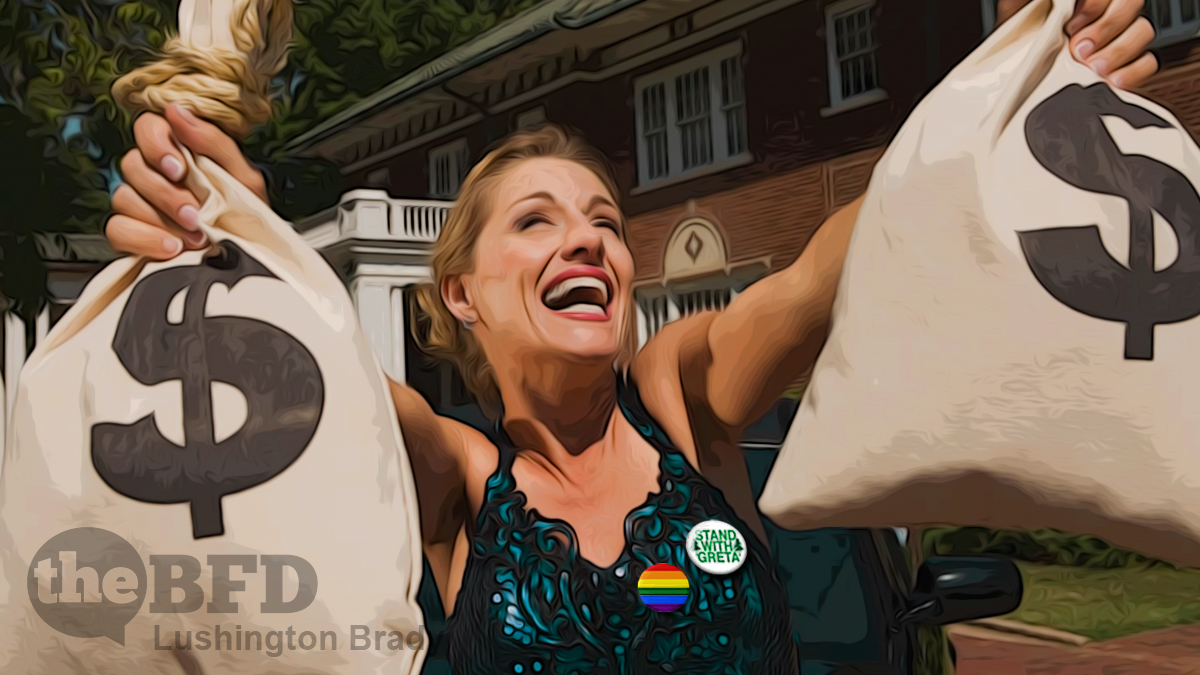In a great little scene from Australian film, Idiot Box, protagonists Mick and Kev cross a pedestrian overpass above an arterial packed with rush-hour traffic. Mick wonders about all the people in all the cars: “Where do you reckon they’re goin’?”. Kev glances over and sagely observes: “Fuck ‘em”.
Which is pretty much how I feel, mentally glancing across Bass Strait, to where Victorians have, astonishingly, voted “Dictator Dan” Andrews in for a record third term. There won’t be enough popcorn in the world to satisfy the schadenfreude of yet another socialist experiment burning down around their own ears.
But that’s not entirely fair to the nearly half of Victorians who didn’t vote for Andrews or the Greens.
There are two main lessons from the Victorian election: firstly, Labor and the Greens are the parties of the rich. Second: conservatives need to remember that they are supposed to be conservative, and that an opposition’s job isn’t to chase after the government, shouting, “Us, too!”
It irks Greens types no end when I remind them that their party is the party of the rich. Champagne socialists have always, in defiance of obvious reality, tried to pose as horny-handed sons of toil. But the results speak for themselves: the Greens vote is overwhelmingly concentrated in the richest, inner-city suburbs of Melbourne, Sydney and Brisbane. In the case of Melbourne, they’re literal champagne socialists. All that $2 sausage-in-bread stuff is for the plebs.
A plate of half a dozen oysters and a glass of French champagne were on the menu at Richmond High School during polling on Saturday for anyone with $42 burning a hole in their pocket.
For those after something more substantial, there was the Double Jamie Oliver Insane Burger for $17. The $10 Boring Old Burger was advertised “for wimps and right-wing Liberals”.
Gabrielle de Vietri won the booth comfortably for the Greens while the Victorian Socialists’ Roz Ward gained a credible 4 per cent.
If Ward’s name rings a bell, it should: she was a pioneer of the trans grooming agenda, who boasted about teaching kids “to be gay and communist”.
Richmond was once a hard-scrabble working-class suburb. But that was nearly a century ago: today, it’s a haven for the wealthy, taxpayer-funded elite who can afford to indulge their lunatic green socialism.
The Reserve Bank of Australia’s monthly interest rate announcements are of little concern to the four out of five households in Richmond who don’t pay a mortgage. The pressure on businesses isn’t felt by the majority of people in Richmond who work in occupations funded wholly or partly by the government.
Nor are they greatly touched by rising energy prices compared with the tradies in the outer suburbs or farmers in country Victoria. Hence, they enjoy the luxury to choose between punishing energy policies that would devastate the economic sectors that make, distribute and sell things.
Richmond is the epicentre of the “laptop class”: the public servants who got to stay home on full pay during lockdown, bingeing on Netflix and UberEats.
In the outer suburbs, where people actually work for a living and make things, it was a very different story. A story that the Liberal party completely ignored, to their own peril.
Yet the swings against Labor in the outer suburbs betray a vulnerability the Liberals could have exploited if the party had stuck to its natural game of sober economic management tempered by honest conservative pragmatism. The Coalition would undoubtedly have performed more strongly if it had listened harder to the voters of Narre Warren and Broadmeadows rather than Caulfield where university graduates outnumber tradies by a margin of six to one.
Unpublished polling conducted in the middle and outer suburbs of Melbourne showed the cost of living was far and away the most important issue for voters aged between 25 and 54, the demographic the Coalition struggles to attract. More than a third of voters (36 per cent) said inflation was their biggest concern, followed by 21 per cent who nominated improvement to health services and 16 per cent the severity of lockdowns. Only one in 10 put action on climate change at the top of their list.
The Australian
So, what did the Liberals do? Put “climate action” front and centre of their policy agenda, outdoing even Labor with its pie-in-the-sky emissions reductions targets.
As a result, the widespread fury at Andrews Labor outside the wealthy inner suburbs was dissipated. While the Liberals played at being Teals, a raft of genuinely conservative minor parties scooped up the anti-Dan vote. The solidly conservative, rural-based National Party increased its vote by three times the piffling 0.2% increase recorded by the Greens. But the “Others” knocked both out of the park with a stunning 17% of the primary vote.
In a clear signal, the “Others” recorded a positive swing that nearly exactly matches the swing away from the Liberals.
If the Liberals can’t read that room, then they deserve to lose.

